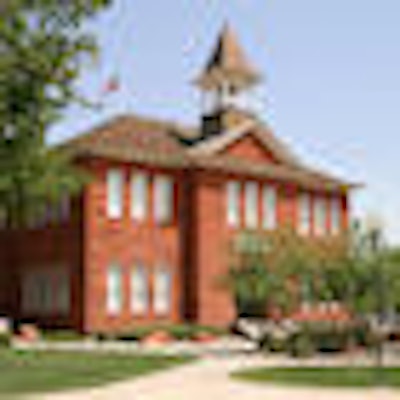
The U.S. Federal Trade Commission (FTC) has stepped into the battle over mobile dentistry in Louisiana, urging state lawmakers not to ban private dentists from its schools.
A committee of the state Legislature will hold its first hearing May 5 -- and most likely vote -- on a bill that would ban all dentistry from schools except care provided by federally qualified health centers; fluoride treatments, cleanings, and exams offered for free; or sealants applied by state-run universities.
“There's no evidence that school-based dentistry is bad.”
— Gregory Folse, D.D.S.
The bill would shut down the for-profit company Big Smiles, which provides a gamut of dentistry, including restorations and extractions, to Medicaid patients in Louisiana schools, as well as some smaller practices with a similar focus.
On Friday, the FTC waded into the controversy with a letter arguing that the legislation falls into its area of interest because it involves the way competition affects consumers. "We are concerned that if the proposed legislation becomes law, fewer students -- especially the indigent and economically disadvantaged -- will receive dental care," reads the letter, signed by commission directors James C. Cooper, Pauline Ippolito, and David Wales.
Among other references to buttress its argument, the FTC cites U.S. Centers for Disease Control and Prevention briefings on school-based dentistry.
The FTC letter is only an opinion, however, said Gustav Chiarello, an FTC staff member involved in drafting the letter. "It's meant to persuade some decision-making," he said. "This alone does not have enforcement behind it."
The FTC has brought action against at least one state dentistry board in a similar case. The South Carolina Board of Dentistry in 2002 restricted hygienists from providing dental care in schools, and the FTC successfully sued to overturn the regulation.
But state legislatures and governors are specifically exempt from the FTC's jurisdiction, so the agency can't do much if the legislation passes.
Still, Big Smiles owner Greg Folse, D.D.S. was pleased with the letter. "I think they've hit the nail on the head with this opinion," he said. "There's no evidence that school-based dentistry is bad."
The Louisiana Dental Association (LDA), which sponsored the legislation, responded to the FTC Monday with a letter arguing that the FTC ignores the fact that public universities and volunteers could still provide some care on school campuses. It also questions the legality of using school property for any purpose other than education. And it reiterates the organization's health and safety arguments against dentistry in schools.
In a previous interview with DrBicuspid.com, Martin Garrett, D.D.S., chair of the LDA, said the association has two primary concerns about the work Dr. Folse is doing. "One of the biggest aspects is that we want to keep parents involved," he said. "In schools, parents are largely excluded."
Dr. Folse's company, Big Smiles, gets parents signatures on consent forms before treating children. But Dr. Garrett said that's not sufficient. He gave the example of a dentist finding in the midst of another treatment that a patient needed a pulpotomy. The dentist should be able to go out to the waiting room and talk to the parent before completing that procedure, he said.
"In a private setting, you sit down with the parent and go over their health history," Dr. Garrett said. "Otherwise, some health concerns could be overlooked."
The LDA, having successfully lobbied to increase Medicaid reimbursements in the state, is now working on a system by which dentists would volunteer their time to do exams and referrals in schools.
Dr. Folse argues that it's simply not possible for many poor Louisiana parents to take time from work to accompany their children to a dental office.
If parents can't transport their children, the state would provide buses and vans under the LDA plan, Dr. Garrett said. Transporting kids with buses or vans would take too much time out of the kids' school day, Dr. Folse responded.
The two sides are also divided on the issue of sanitation. Jeff Hooton, D.D.S., a proponent of the legislation who occasionally operates a mobile dentistry van for prisons in Louisiana, argued that portable suction devices are not powerful enough to reduce aerosols in a school setting.
Dr. Folse responds that his electric handpieces don't produce enough aerosols to warrant that concern.
Dr. Hooton and Dr. Garrett both worried about the possibility that a child would be returned to the classroom rather than home. "They go back in the classroom and drop a bloody gauze on the floor, then they have contaminated the classroom," he said. "Our biggest concern is the safety of the children."
In response, Dr. Folse said his team stays on the school grounds for the full day and doesn't release children back into the classroom until it's safe to do so -- in contrast to some parents who may drop their children off at school after a visit to a dental office.
Copyright © 2009 DrBicuspid.com



















